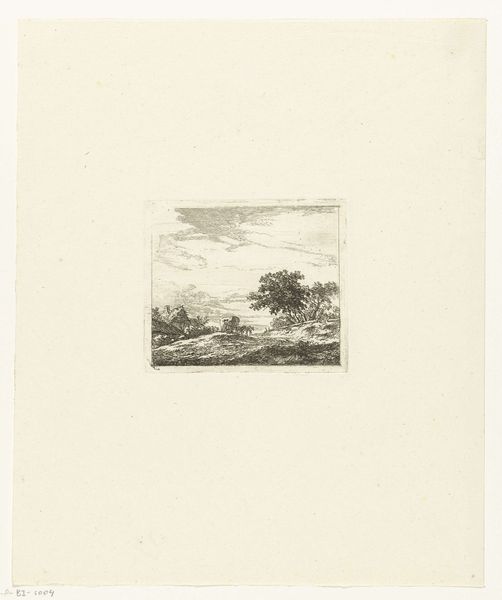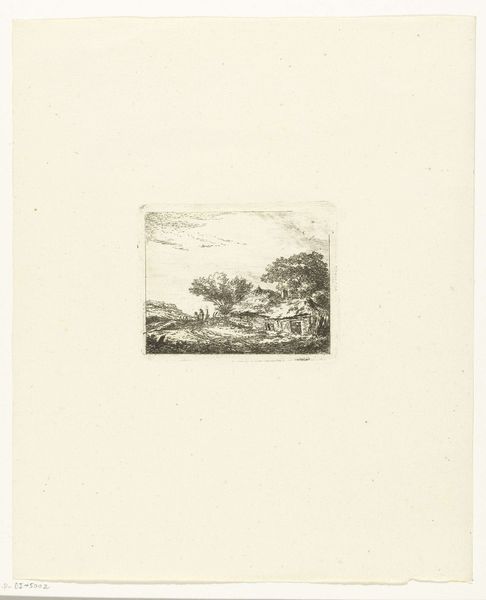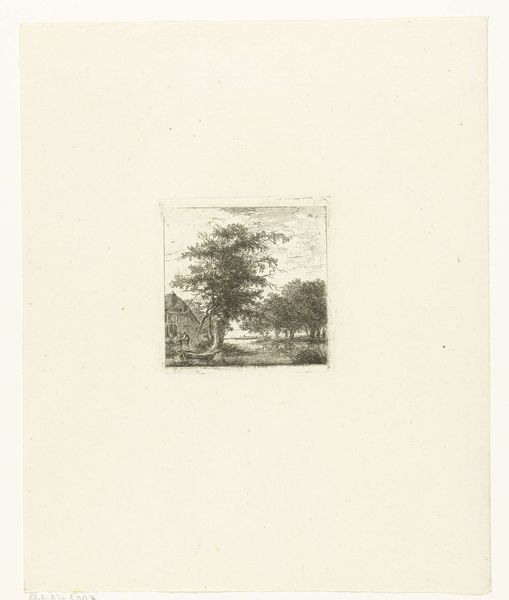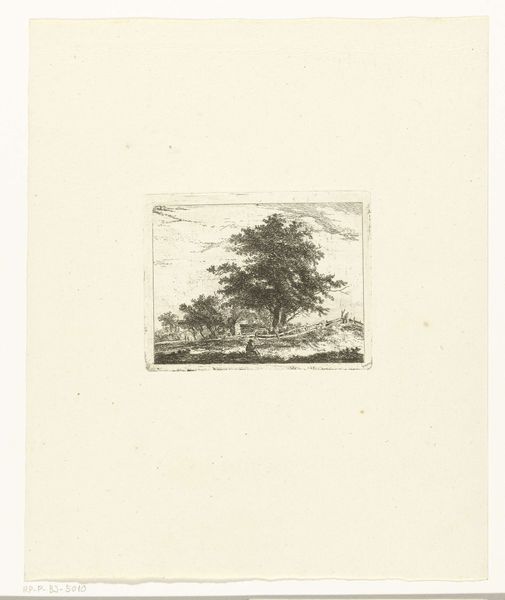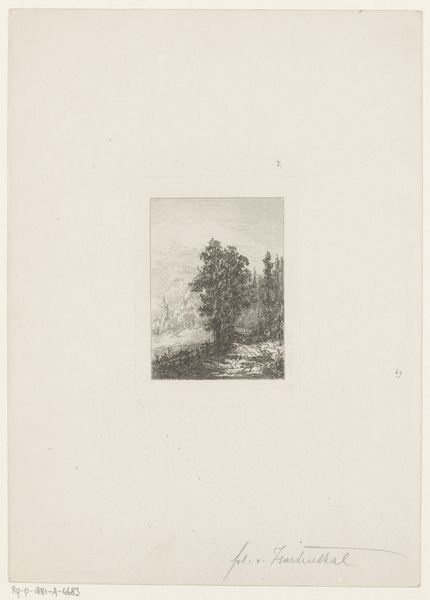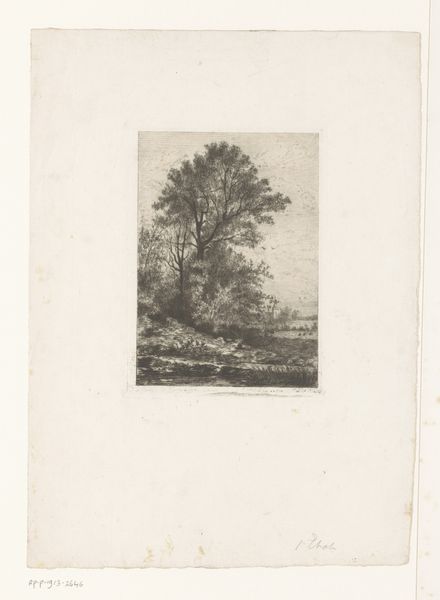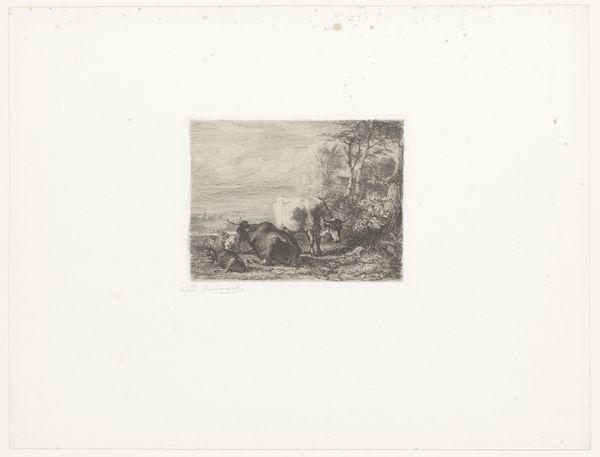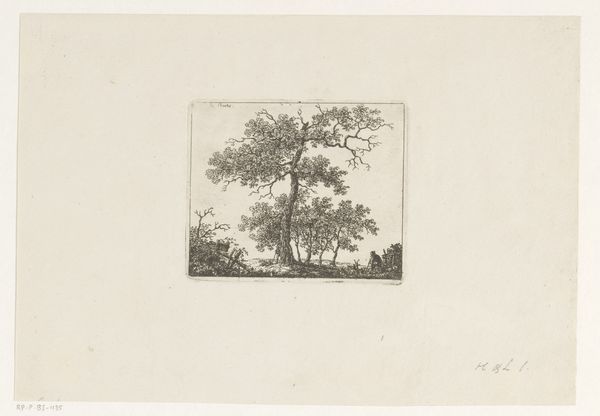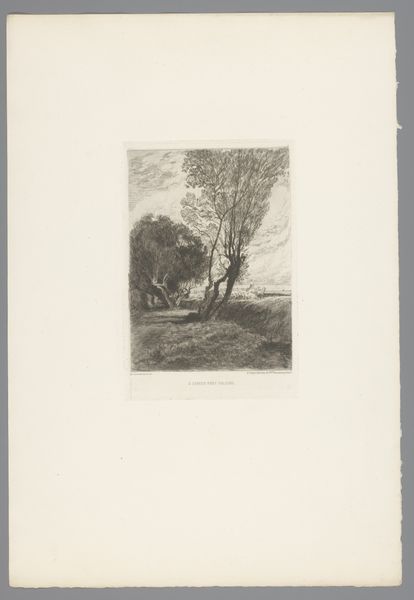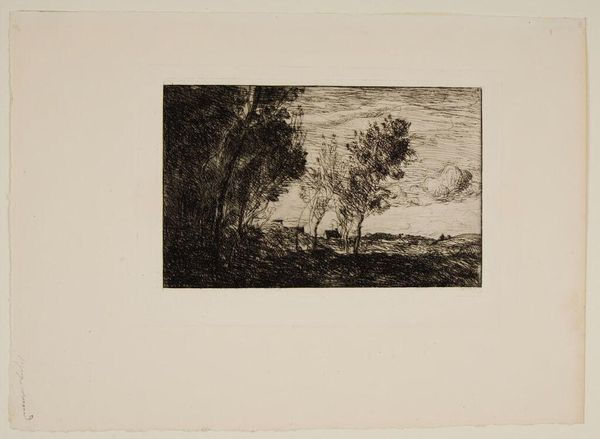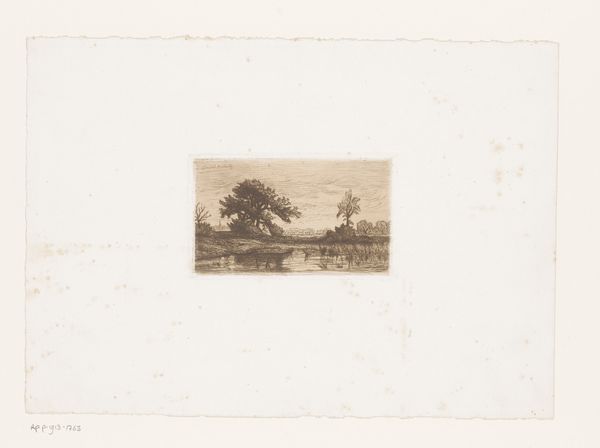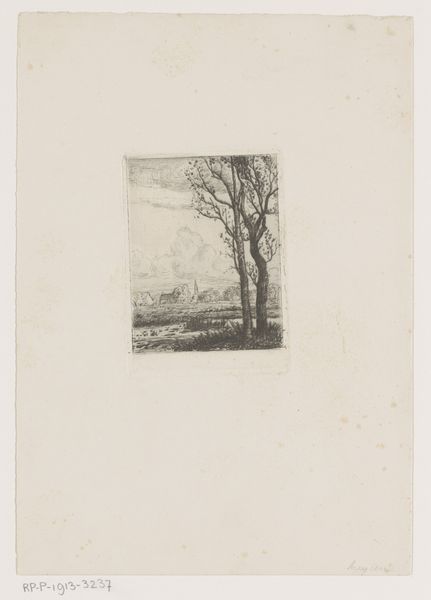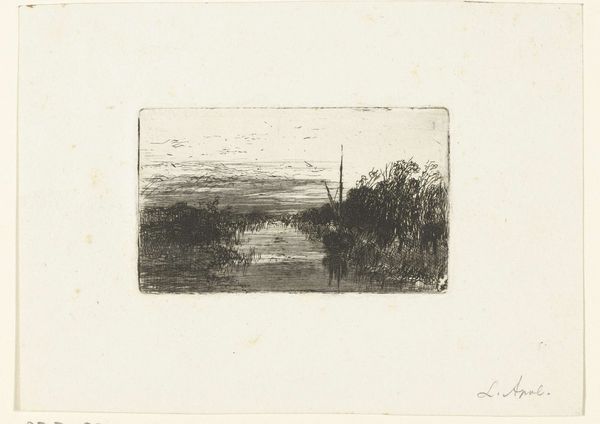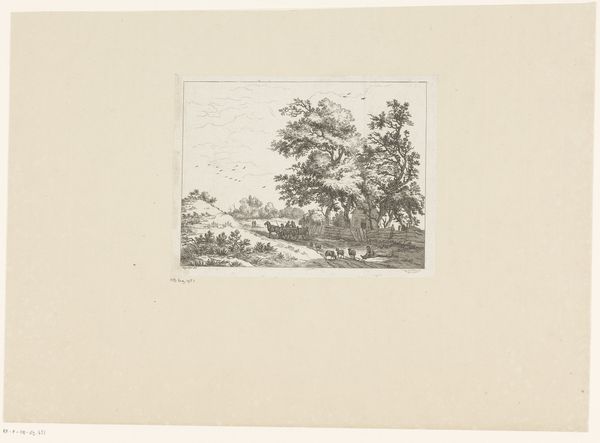
print, etching
#
dutch-golden-age
# print
#
etching
#
landscape
#
etching
#
genre-painting
Dimensions: height 85 mm, width 112 mm
Copyright: Rijks Museum: Open Domain
This landscape with a coach and passengers was etched by Hermanus van Brussel at the turn of the 19th century, using a metal plate and strong acid. The artist would have painstakingly covered the plate in a waxy, acid-resistant ground, before using a fine needle to scratch away the areas that would eventually hold ink. It’s an unforgiving process – any slip of the hand would be permanently captured. The plate would then be submerged in acid, biting into the exposed metal, before being inked, wiped, and pressed onto paper. Consider the wider context: the etching process was essential to the expansion of knowledge, and the development of a print market. It was a way of mass-producing images, making them accessible to a broad public. And it speaks to the changing landscape of the Netherlands itself: the coach and passengers hint at growing mobility, and the rise of a merchant class with the leisure to travel. This small print offers a window onto a world in transition, made possible by the skilled labor of the artist and the technologies of reproduction.
Comments
No comments
Be the first to comment and join the conversation on the ultimate creative platform.
